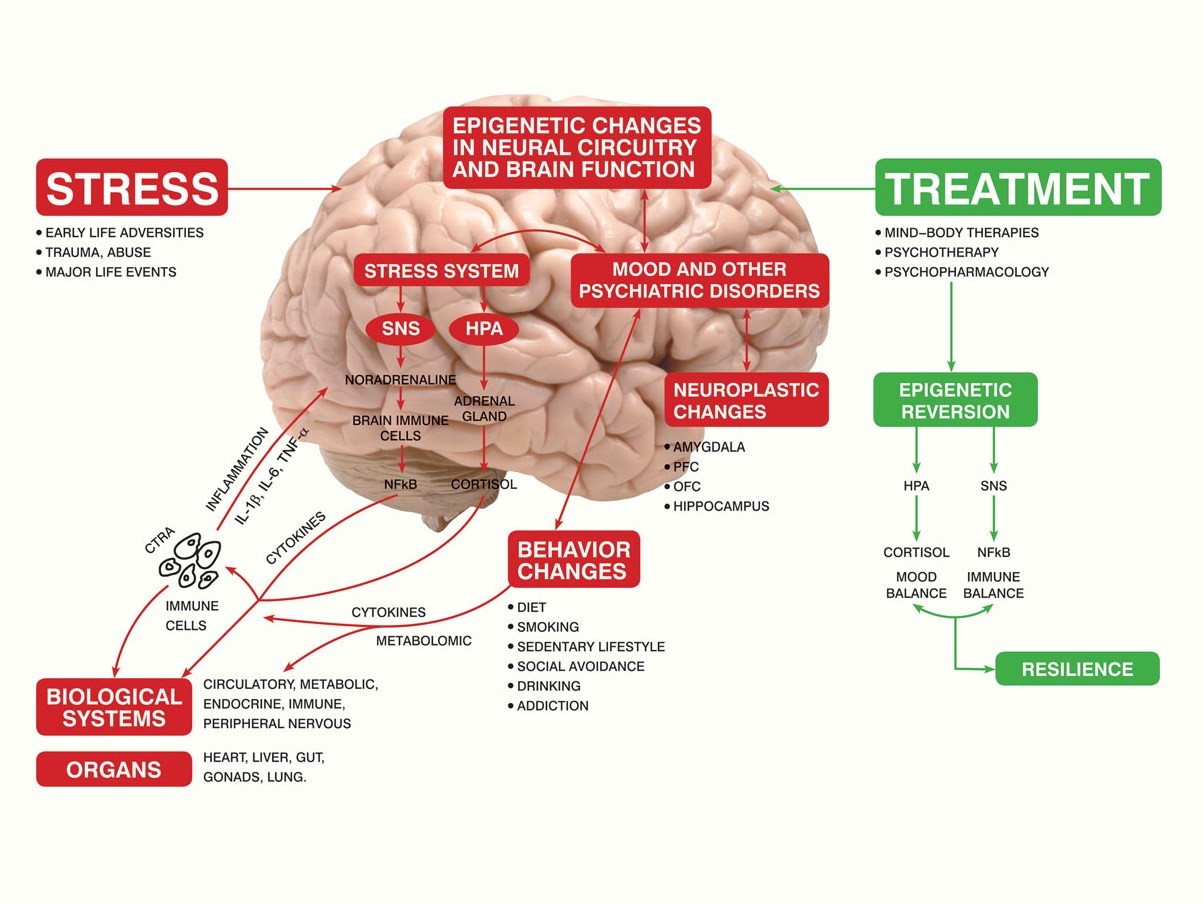Approach
This approach addresses the functioning and problems of the nervous, endocrine, and immune systems, as well as their impact on changes in the patient’s psychological state. As a new branch of medicine, PNEI studies how psychological dysfunctions can affect physiology and cause issues in the nervous, endocrine, and immune systems.
PNEI and Chronic Stress
Chronic stress is linked to the development of almost all chronic diseases and essentially represents our inappropriate response to life situations. The chronic stress we are aware of has many effects on the human body and can cause problems in neuroendocrine secretion, as well as diseases resulting from hormone secretion disorders. The hypothalamic-pituitary-adrenal (HPA) axis is a complex system of interactions and feedback loops between three endocrine glands: the hypothalamus, the pituitary gland, and the adrenal glands.
When these three organs communicate with each other, they regulate our stress response and have an anti-inflammatory effect.
What is PNEI?
Different systems—psychological, neurological, endocrine, and immune—interact to achieve the body's internal homeostasis. As evidence of this, studies have shown that immune cells can interpret signals originating from the autonomic nervous system (ANS) and the brain.
If the mind and body (Psyche and Soma) are capable of interacting, it is not difficult to accept the idea that mood—conceived as a mental framework that is more or less positive in interpreting stimuli—can regulate or at least influence (or, if you prefer, disrupt) the central nervous system, as well as hormonal and immune functions.
Every emotional state—such as love, fear, pleasure, pain, anxiety, anger, and their complex nuances, commonly referred to as feelings—is generated by processes occurring in the brain's "higher" regions (such as the cortex and limbic lobe). These emotions then spread throughout the body, influencing various organs and systems through biochemical neurochemical actions. This process is mediated by substances known as "ligands," which modulate signals between individual cells, including neuropeptides, neurotransmitters, and hormones.
These "ligands" and their receptors—specific "locks" located on the cell membrane—are present throughout the entire body, not just in the nervous system. This means that the whole body "thinks" (in a more or less complex way, depending on the specific area), and that every cell "feels" and processes emotions, generating its own information and transmitting it to other cells through a dense communication network. As a result, every human psychophysiological aspect can be viewed as part of a unified reality.
The molecular basis of emotions can be defined as messengers that transmit information to connect the body's main systems into a single functional unit, referred to as the body-mind connection. Psycho-neuro-endocrine-immunology (PNEI) is the field of research that encompasses a broad spectrum of scientific and humanistic disciplines. Ultimately, it serves as a unifying framework for understanding the complex processes of organism adaptation.
Everything starts in the gut...
Today, it can be stated with confidence that the most significant cause of autoimmune diseases is a disrupted axis—specifically, the excessive secretion of certain neurotransmitters (dopamine, noradrenaline, and serotonin) and adrenal hormones (cortisol). This imbalance promotes inflammation through disturbances in the gut microbiota, the development of insulin resistance, hormonal imbalances, the onset of leaky gut syndrome, and sleep disorders.



